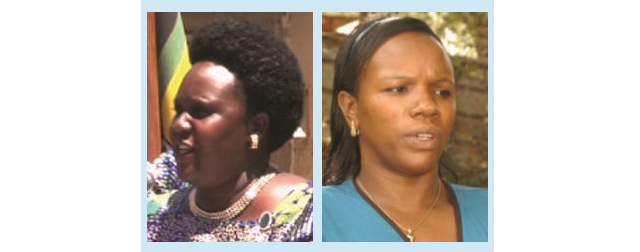
Indeed, President Museveni called on NRM MPs not to elect job seekers urging them not to turn EALA into an employment bureau. Sources say President Museveni met and encouraged some of the candidates to drop out of the race.
Akol, formerly Minister for Internal Affairs and Bukedea Woman MP said her four-year stint as a former member of the African Caribbean Pacific- European Union (ACPU-EU) joint parliamentary assembly, is what gave her the clout in the race.
“The people who won were not expected maybe because they did not engage in a lot of posturing,” she said while responding to surprises that she made it.
The election was a high-stakes one. At State House Entebbe, voting had to be postponed to the second because the process was rocked by violence on the first day. Allegations of bribery also rocked race.
But Dennis Namara, a former MP contestant for Buyaga County told The Independent that MPs voted for aspirants based on their perceived competence and not because of cash inducements. “You cannot convince those MPs by giving them anything,” he said.
Namara also said that campaign strategy proved more effective. “For example in the Central region where consensus was that we would elect one person, Mathias Kasamba edged out Francis Babu because Kasamba had started campaigning way back. But there’s no doubt that Babu was capable or had the relevant experience for the position.”
For him, the campaign strategy proved more effective. “For example in the Central region where consensus was that we would elect one person, Mathias Kasamba edged out Francis Babu because Kasamba had started campaigning way back,” Namara said, “But there’s no doubt that Babu was capable or had the relevant experience for the position.”
Another contestant, former Minister Henry Banyenzakyi, who was one of those accused of bribing MPs, denied it. After the election, he reportedly told journalists that the NRM electoral process was marred by fraud.
NRM electoral commission boss Tanga Odoi decried the level of commercialisation that has invaded the party. Some observers attribute this to the fronting of cadres for the posts and the efforts to have them go through at any cost.
This interest has also peaked because of the hefty pay an EALA MP—a monthly salary of as Shs50m plus hefty allowances the MPs get for the sittings which are rotated in the region’s capitals.
FDC fumbles again
In the FDC primary election, Ekwao trounced her opponents including party stalwart Turinawe. But the party fumbled and fronted both Ekwao and Turinawe for the EALA elections sparking criticism.
FDC Secretary General Nandala Mafabi, was even forced to pen a letter to Speaker of Parliament Rebecca Kadaga making a case for their candidates.
Other opposition parties like DP, UPC opposed the move saying it may hinder their chances of getting their representatives elected. DP President Nobert Mao criticised the move by FDC.
The confusion was as a result of FDC boycotting the previous EALA elections in the previous round paving way for DP and UPC to fill the slots.
Away from the parties, those who share Kanyeihamba’s views, point to amongst many, an example that happened in the current term (2012-2017). Then speaker of EALA Margaret Zziwa was impeached in just her second year over misconduct and abuse of office. Zziwa was the first EALA speaker to be impeached.
Some say it is because Uganda was not sending its best that it suffered the misfortune of having its first Speaker impeached. Former Minister for Ethics and Integrity Miria Matemebe while appearing on a late night political talk show expressed her misgivings recalling the time Zziwa was elected Speaker.
But Zziwa had also been rejected by local voters in the race for Kampala woman MP. Zziwa had contested in EALA in 2007 after she was defeated by Nabila Sempala in the race for Kampala Woman MP in 2006.
It was not surprising, therefore, they claim that she would later be rejected in the regional parliament too.
But Zziwa wasn’t the only reject. And others stayed and served their terms. For instance, Fred Mukasa Mbidde of Democratic Party twice lost the election for Kalungu East before being elected to EALA in 2012. Suzan Nakawuki lost the 2011 race for Masaka Municipality to Mathias Mpuga before venturing into EALA the next year.
Based on this, other critics say Kanyeihamba’s view ignores the fact that Ugandan politics has become very competitive and victory is now driven by money rather than experience and competence.
The contenders, who throw money around, also tend to look at the positions as money making ventures rather than opportunities to pursue public good.
Compared to the EALA aspirants of today, the 2001-2006 cohort was a different kind; fairly well respected and not exactly hankering after political capital, observers say.
That group included Yona Kanyomozi, a former minister of Cooperatives in Obote II government, Maj Gen Mugisha Muntu, an army commander, Capt Baker Richard Dudu, a serving soldier, Med Kaggwa, a former Board secretary at Uganda Revenue Authority and minister, among others.
EALA not the issue
Muntu, a two term EALA MP partly faults the current problems on the ruling party.
 The Independent Uganda: You get the Truth we Pay the Price
The Independent Uganda: You get the Truth we Pay the Price





